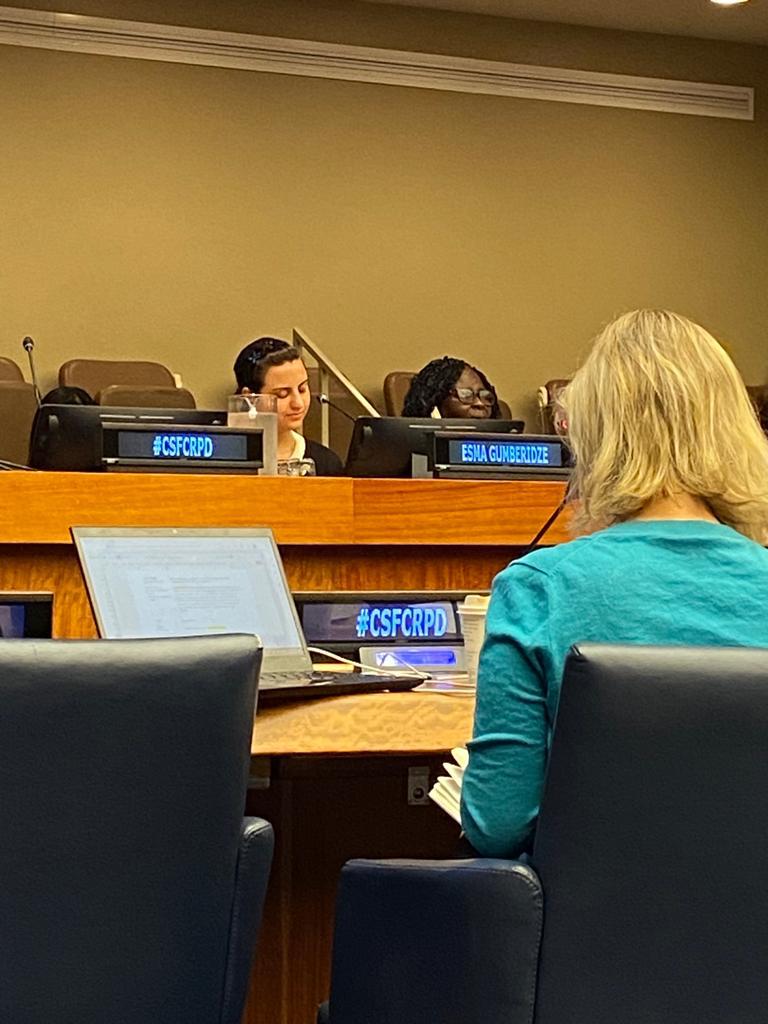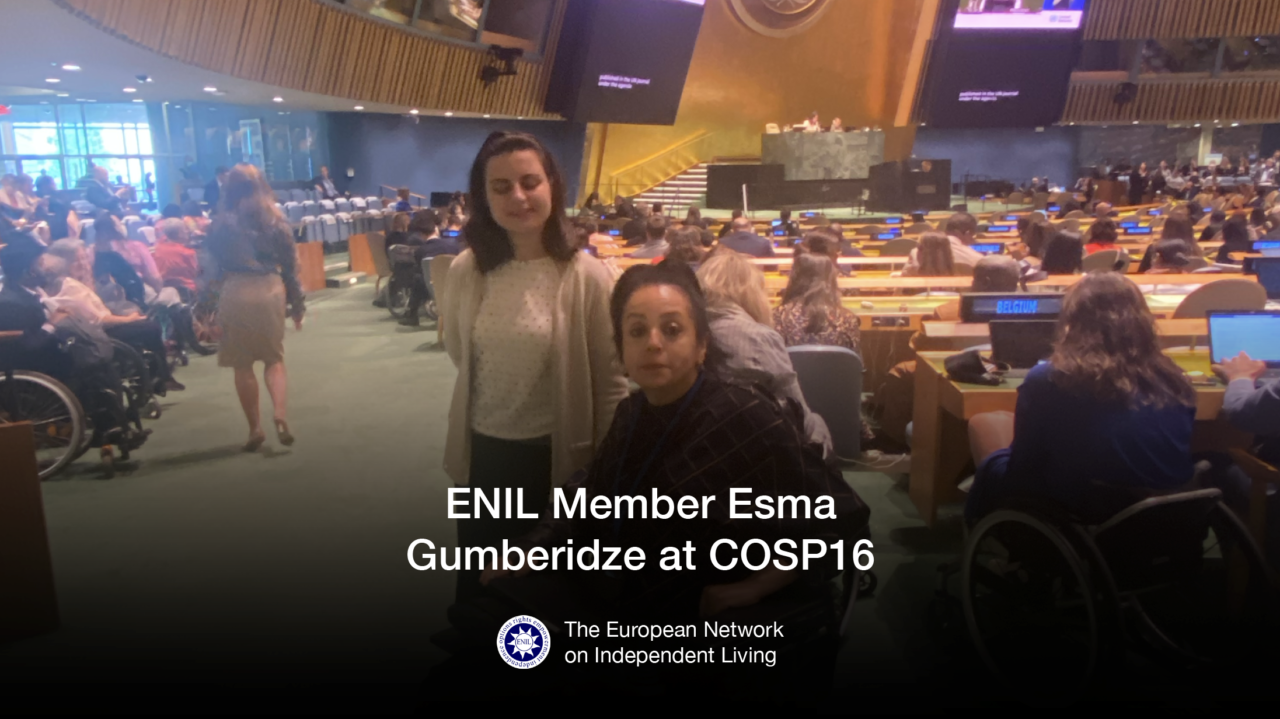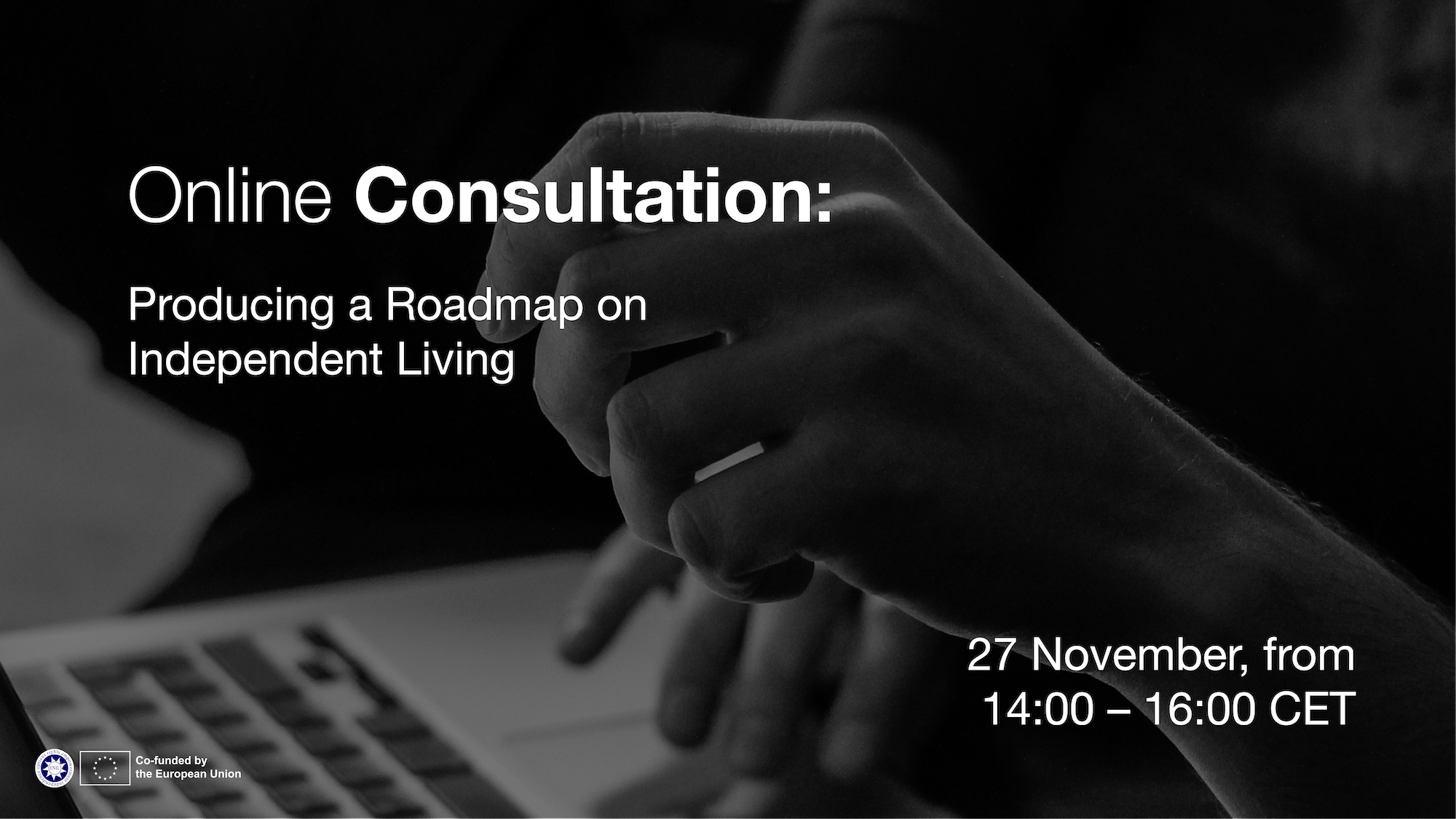This week, our members Esma Gumberidze and Nadia Hadad were representing ENIL in New York for the Civil Society Forum, the General Debate of the 16th Session of the Conference of States Parties to the CRPD and the COSP16 side-event we co-organized entitled “Implementing the Guidelines on Deinstitutionalization, including in emergencies: Challenges, opportunities, and way forward””.
In this article, we have put together Esma’s speech to the COSP16 General Debate, as well as the points she highlighted during the Civil Society Forum.
1. Esma’s speech at the COSP16 General Debate
Distinguished delegates,
I am Esma Gumberidze. I am representing the European Network on Independent Living, a user-led network of disabled people, with members throughout Europe.
I am a young blind woman from Georgia. In the past years, we have seen good progress on the advancement of disability rights in my country. But our fight is not over. According to the Independent Living Survey, 60% of disabled adults in Europe have no choice about their living arrangements. With inaccessible environment and lack of support, the only options for disabled people are being isolated at an institution or being isolated at their own homes, excluded from their communities.
The Convention on the Rights of Persons with Disabilities, the General Comment n°5, and the Guidelines on deinstitutionalization affirm that disabled people have the right to live independently and being included in the community. I assume that everyone sitting in this room today would agree that disabled people deserve equal rights. But why have we not achieved this? Why do we have to constantly remind duty bearers of their commitments? Why, even in the countries that pride themselves of being the most democratic, are disabled people still being excluded from education and employment?
Invest in us. Invest in our communities. That money that you are allocating into institutions, invest it in personal assistance, in peer support, in Centers for Independent Living.
Listen to us. Listen to disabled women. To young disabled people. To those most neglected, and those living in institutions that cannot be with us today. We know best what our needs are, and what solutions to put in place.
We call on governments to put in place deinstitutionalization strategies that have clear indicators and timeframes, based on the Guidelines on deinstitutionalization and countries’ concluding observations. We call for no more investments in institutions, no matter if they are big or small, if they host three disabled people or three hundred, and to invest in independent living instead.
Thank you for your attention.
2. Esma’s key points for the Civil Society Forum



- Youth with disabilities are the future of the movement and they need to be included in conversations.
- For example, relevant bodies like the CRPD Committee and national monitoring committees should have at least one young member. Few countries send young disabled delegates to the General Assembly.
- Some barriers to participate today are affordability, when being part of advisory boards and committees is unpaid, accessibility, and visas. Melike Bal, from the ENIL Youth Network, should have been with us today, but could not come because of her visa, and this keeps happening.
- But there are some positive experiences. For example, in Georgia, the ombudsman has been consistently consulting young people.
- To make sure that the youth is ready to be part of political and public life, we need independent living to be a reality from a young age. When your environment is not accessible and you grow up in segregated environments, your ability to function and learn is impacted, and as you become an adult, you may not have the skills to be actively involved in discussions.
- Young disabled people need accessible technology. Technology will not make the world inclusive by default, but if we want disabled youth to access, we need to make deliberate efforts. Technology is increasingly more visual, and less screen reader friendly. I wrote a petition to have old Facebook more, as it has become very difficult for me to use it. Today, users of the app Reddit are on strike, as users will no longer be able to use their screen readers on the app.
- Conclusion: we need to have youth with disabilities in mind and make a conscious effort to include them. We need to support our youth to live independently, with the support they need. We need to listen to their concerns, and make sure that opportunities for mainstream youth participation are promoting among the disabled youth.



